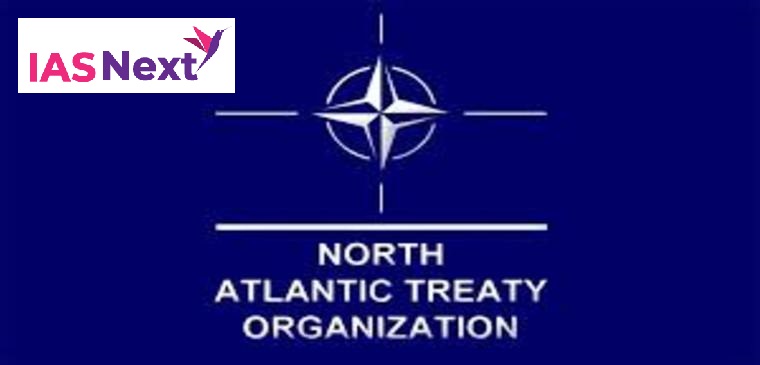CURRENT AFFAIRS
Get the most updated and recent current affair content on Padhaikaro.com
North Atlantic Treaty Organization (NATO)
- IAS NEXT, Lucknow
- 18, Feb 2022

Reference News:-
Russia has said it is pulling out its forces surrounding Ukraine. But, NATO and the U.S. have said that they are yet to be convinced the pullout was real.
What’s the issue?
Fears have been mounting of a major escalation of the conflict in eastern Ukraine, where government forces have battled separatists in the mainly Russian-speaking Donbas region since 2014. Crimean peninsula was annexed by Moscow in 2014.
Now, Russia has stationed its military across the border.
But, why is Russia worried about NATO?
Russia has demanded that NATO guarantees Ukraine will never join the alliance.
- Russia believes that NATO is “encircling” Russia and posing a threat.
- It is also said that NATO missile defence threatens Russian security.
- Above all, NATO is believed to be a U.S. geopolitical project and has always tried to isolate or marginalise Russia.
About North Atlantic Treaty Organization:
It is an intergovernmental military alliance.
Established by Washington treaty.
Treaty that was signed on 4 April 1949.
Headquarters — Brussels, Belgium.
Headquarters of Allied Command Operations — Mons, Belgium.
Significance:
It constitutes a system of collective defence whereby its independent member states agree to mutual defence in response to an attack by any external party.
Composition:
Since its founding, the admission of new member states has increased the alliance from the original 12 countries to 30. The most recent member state to be added to NATO was North Macedonia on 27 March 2020.
NATO membership is open to “any other European state in a position to further the principles of this Treaty and to contribute to the security of the North Atlantic area.”
Objectives:
Political – NATO promotes democratic values and enables members to consult and cooperate on defence and security-related issues to solve problems, build trust and, in the long run, prevent conflict.
Military – NATO is committed to the peaceful resolution of disputes. If diplomatic efforts fail, it has the military power to undertake crisis-management operations. These are carried out under the collective defence clause of NATO’s founding treaty – Article 5 of the Washington Treaty or under a United Nations mandate, alone or in cooperation with other countries and international organisations.